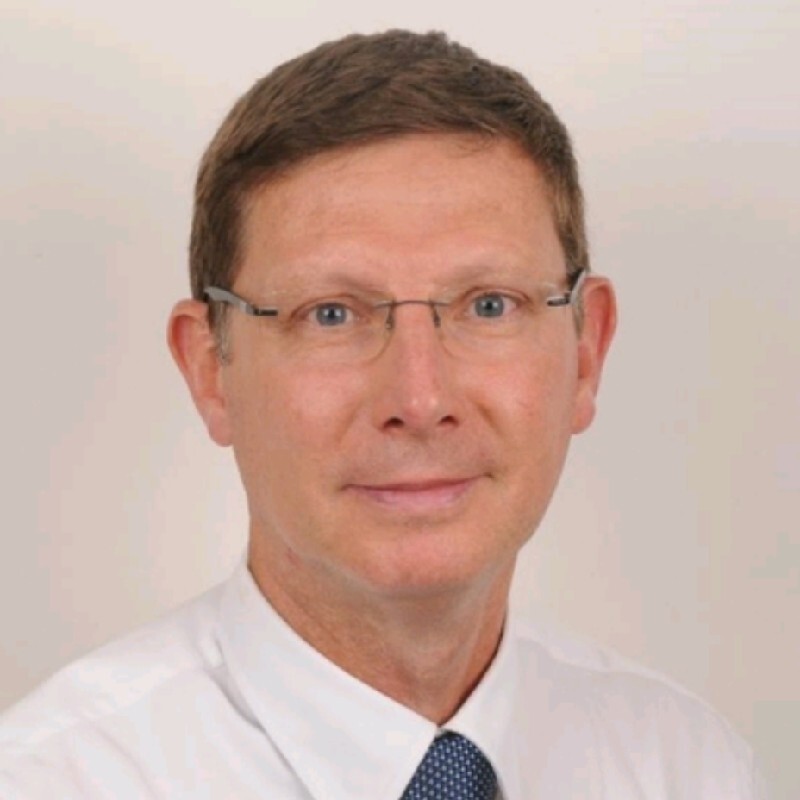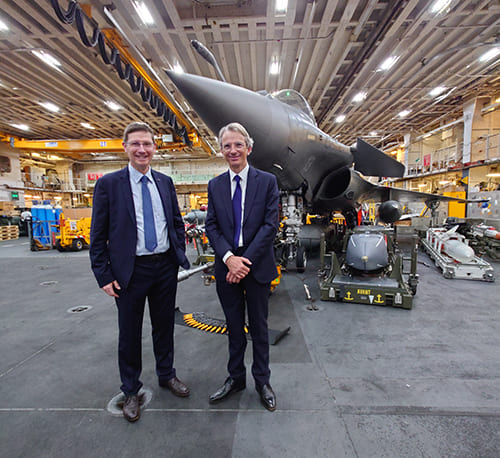Discover the interview with Stephane Watier, AXON's Indian Units and Singapore Unit Global Manager and French Trade Advisor located in Bangalore, India, in which he reveals "Why India Emerged as a Key Market for Axon.

My career began in 1986 at Axon France, where I joined as a trainee. My position within the structure then evolved. In the years that followed, I was put in charge of Axon’s international development.
The management of the Indian subsidiary was first delegated to one of our agents, who was in charge of this job from 2009 until 2016.I worked alongside him as technical support throughout this time. We worked together for 7 years to establish and sustain our subsidiary. I took up management on my own in 2017.
Stéphane Watier: As early as 2004, India was identified as a promising country, particularly in the defense and space sectors, the very fields that account for the bulk of our markets.
After carrying out several sales prospecting missions, which were very well organized by Business France, and taking part in trade fairs in India, we identified a sales agent.
Five years later, as sales increased, we believed that establishing a subsidiary would provide us with better exposure in India. With the assistance of Business France, this approach of international deployment was also used in China and Brazil.
So, in 2009, we established the Axon India subsidiary, rented space, and began small-scale production. After a few months, considering the potential of the Indian market, it appeared obvious to us to invest in India. We decided to buy a parcel of land and create a facility in India to cross-pollinate Axon’s technology with Indian technology.
For many years, India has been producing impressive technologies in the space and aeronautics sectors. Working with their engineers revealed to us that the Axon technologies were highly complementary to those created in India. People still consider India to be a developing country in terms of technology, but they’ve been launching satellites for years.
Axon began its “Make in India” campaign back in 2009, 5 years before Prime Minister Modi announced the launch of the campaign.
One of the peculiarities of the Indian market in my field is that the client only places his trust once he has been able to appreciate the quality of the products manufactured by a potential supplier, so for us, it’s a question of the production chain.
In India, the trust placed in companies works differently from that in most other countries. In the latter, in principle, a company can invest in a factory locally once the host country has signed a purchase order for the said products. In India, by way of exception, the ideal way to win the trust of potential customers is to be able to present your production facilities before an order is issued. This Indian confidence scheme represents an investment cost. However, the good news is that once trust has been established, they keep their word. In any case, that’s what I’ve seen in our business.
Today, we want to invest in new product lines in order to secure orders. This strategy is not limited to foreign firms operating in India. This necessity to demonstrate one’s ability to produce applies to Indian businesses as well.
Stéphane Watier: They are mainly other Indian Companies. We’re not the only ones to have understood that India has become a major economic power. The domestic market is huge, and India’s geographical position means that it can reach out to the ASEAN countries.
As a result, European and American competitors are also present.
Stéphane Watier: Maintaining human resources is not a problem at Axon in India. Out of 130 employees, I have less than 3% attrition. This very low percentage of employee departures can be explained by one main factor. When Axon was set up in India, we tried to create a friendly spirit, to create more than just a team: a family. Today, it’s hardly presumptuous to claim that this has worked. Axon’s Indian team is one big family working towards the same goal.
When a difficulty arises in our factory, the Indian teams get involved. They give their all to ensure that the initial project succeeds. Our Indian team takes on projects as if they were their own.
Axon also strives to provide its employees with a safe working environment in which to flourish. To this end, we provide medical insurance that covers each employee’s family. We also attach great importance to the quality of our employees’ day-to-day work, which includes air-conditioning in the plants, access to sports facilities and the food on offer. Finally, employees travel to France during their Axon career to further their training and meet their French counterparts.

Aircraft-carrier Charles de Gaulle in Goa, present at the occasion of French and Indian bilateral naval exercises VARUNA 2023
Stéphane Watier: The first time I went to India, I immediately fell in love with the country. After 10 years there, I still feel the same way. So I’m not thinking of going back to France just yet.
I feel very much in tune with Indian culture and how this country sees things. Indians have a very positive way of approaching all situations. There’s something inexplicable about them that I’ve never seen in any other country.
Stéphane Watier: : Environmental issues are at the heart of our concerns. We are very sensitive to this issue and are trying to put in place several measures to alleviate these problems.
In September 2023, Axon will be the first company to use electric buses to transport our employees. We implemented this means of transport because it reduces carbon emissions. We have therefore signed a contract with a local company that has created buses, especially for Axon. We have a viable economic partnership in which we are committed to using these buses for a set period, to make them profitable for the company that purchased them. The aim here is comprehensive: to encourage more environmentally-friendly means of transport, while promoting the development of local businesses.
Beyond specific environmental issues, ethics are at the heart of our motivations. Axon has planted trees in the factory yard. This type of action not only aims to develop the environmental aspect of our company but also to enhance our employees’ quality of life. They appreciate our actions.
Stéphane Watier: Axon attaches great importance to its relationship with its customers. We try to provide an individual response and service to each of our customers. Axon is not a mass provider, but one that adapts to each need and situation.
When we set up in India, we already had cutting-edge technology. So our aim in coming here was not necessary to develop it further, although we’re always open to progress, but rather to understand the objectives of our new Indian customers as well as possible.
Our entry into the Indian market in 2009 preceded the “Make in India” policy. In a way, we were forerunners of this movement. We set up an alliance between Axon Technology and the Indians. This alliance was set up in compliance with Indian regulations.
For more information on this portrait or on UJA contact Olivia@uja.in
